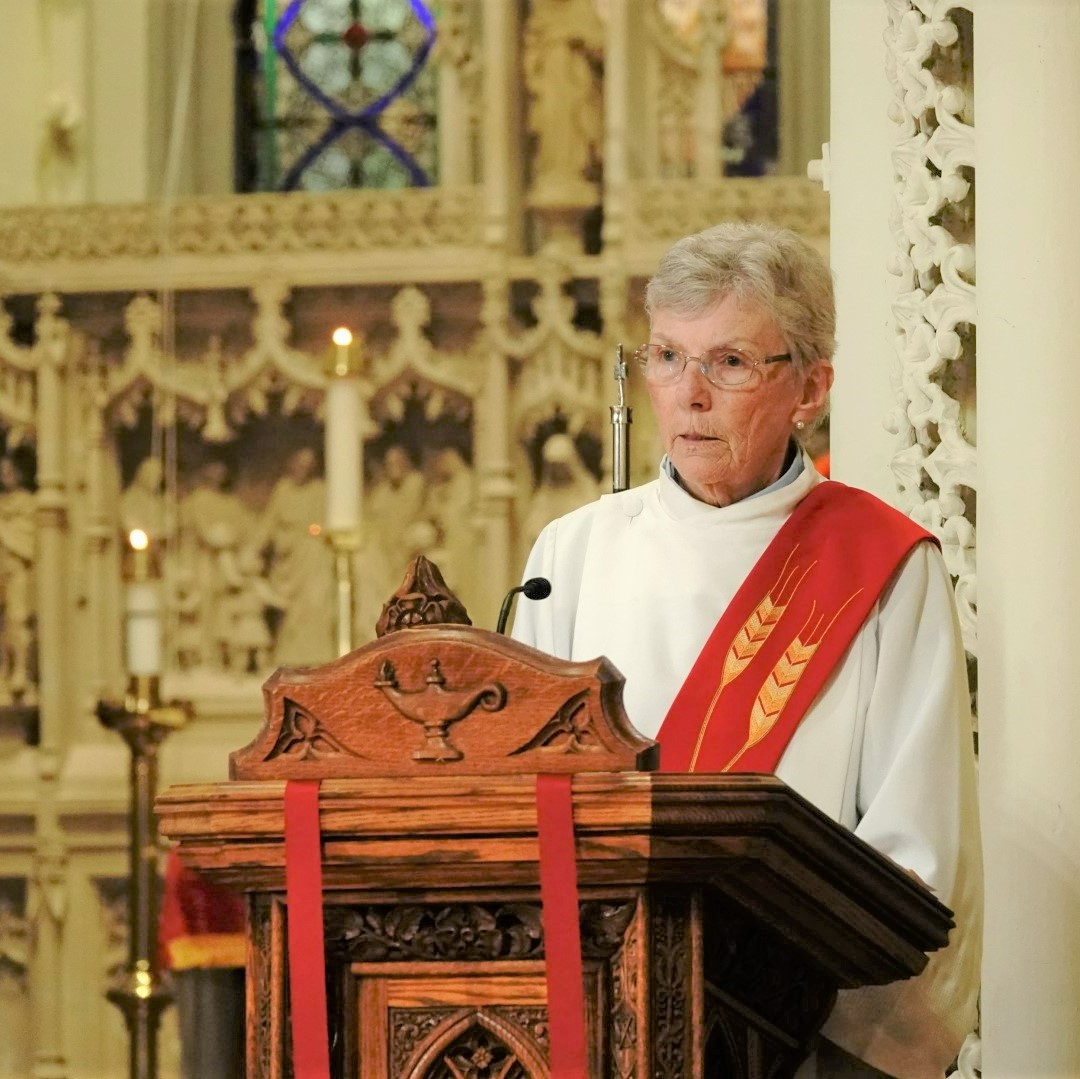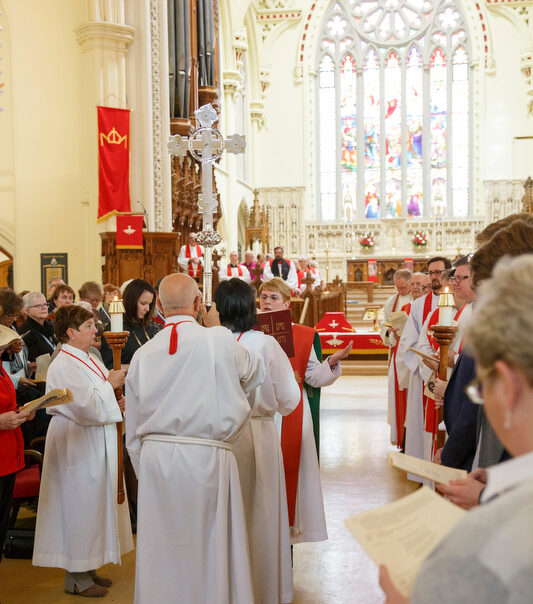The Diaconate

In Holy Scriptures and ancient Christian times, there have been different ministries within the Church. Since the time of the New Testament, three distinct orders of ordained ministers have been known in the Church. First, there is the order of Bishops who carry on the apostolic work of leading, supervising and uniting the Church. Second, there are the presbyters, or ordained elders, in subsequent times
known as Priests. Together with the Bishops, they take part in the preaching of the Word of God and administering the holy sacraments. Third, there are Deacons who in assisting bishops and priests in all of this work, have a special responsibility to minister in Christ’s name to “the poor, sick, the suffering and the helpless” (BAS 631).

The Diaconate is a separate, distinct, and equal order of ordained ministry dedicated primarily to holding before the Church the needs of the world, interpreting those needs to the Church, and enabling baptized persons to discern, exercise and collaborate in the ministry of Christ in the world.
Deacons are icons of servanthood (they are servants of the world on behalf of the church), agents of the bishop (pursuing the diocesan vision for ministry in the world), leaders (encouraging baptismal ministry within their parish) and prophets (alerting the church to the needs of the world and calling and enabling our response to those needs). God calls to each of us from the burning bush and asks us to use our gifts in some form of ministry in the world.
Normally, those called to the office of deacon will have a ministry outside the parish (approximately 80% of their time) primarily serving those on the margins of society and outside the institutional Church. Their secondary vocation (approximately 20% of their time) will be spent in the parish where they may assist in the Eucharist and help enable lay ministry.
The Call to Diaconal Ministry
A call to the Diaconal Ministry is often individual in nature and comes through a person’s prayerful communication with God. It may arise from the settled Incumbent (Rector or Priest-in-Charge) who believes that a particular individual is a possible candidate and is encouraged to explore their own calling. In the Diocese of Niagara, the call must be recognized by both the parish and the diocese.
Serving and to enabling others to serve
Holding before the Church the needs of the world, interpreting those needs to the Church, being a symbol of, a model for, and an enabler of the servant ministries of the whole baptized community
Strong empathy with and advocacy on behalf of those who are marginalized, impoverished, oppressed, sick, and isolated
If you believe you are being called to Diaconal ministry and are a parishioner in the Diocese of Niagara, please contact your rector or priest-in-charge to inquire and begin the application process. After the application process, applicants will move into the discernment and formation stage.
Educational Requirements
Study towards becoming a Deacon in the Diocese of Niagara includes the following courses:
Christian Foundations I
$250
Christian Foundations II
$250
Missional Preaching
$250
Engaging the Community
$250
Pastoral Care
$250
Anglican Polity
$250
Missional Spirituality
$250
Evangelism
$250
Ordination to the Diaconate
The candidate will be ordained to the Diaconate, and begin serving as an Ordained Deacon with a Bishop’s Permission, assisting with the governance of the Church and in the carrying out of its mission to serve all people, particularly those who are poor, sick, lonely or are otherwise on the margins of society.
At no time during the candidacy process does the diocese guarantee ordination to an applicant/candidate.
Applicants/candidates should be aware that this process may take two to three years or longer.
Ordination to the Diaconate
The candidate will be ordained to the Diaconate, and begin serving as an Ordained Deacon with a Bishop’s Permission, assisting with the governance of the Church and in the carrying out of its mission to serve all people, particularly those who are poor, sick, lonely or are otherwise on the margins of society.
At no time during the candidacy process does the diocese guarantee ordination to an applicant/candidate.
Applicants/candidates should be aware that this process may take two to three years or longer.
